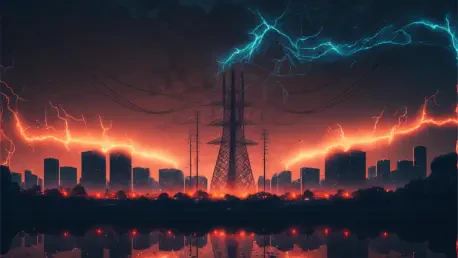With power out across vast swaths of Spain and Portugal, approximately 60 million people found themselves abruptly left in the dark. This unprecedented blackout has stirred urgent discussions among energy sector stakeholders. Energy Minister Sara Aagesen has pushed for transparency and quick data sharing to locate the cause of the disruption, intensifying the spotlight on the energy grid’s vulnerabilities.
Experts Weigh in on Power Plant Performance
In the wake of the blackout, conventional power plants are under scrutiny for potential failures in maintaining voltage levels. Industry experts suggest that maintaining grid stability in modern networks often poses significant challenges, primarily because of the complexity and integration of various power sources. Some argue that conventional plants, crucial to national grids, faced technical failures, contributing to the grid collapse. Others point to systemic inefficiencies that may have allowed such disruptions to occur, emphasizing the need for robust operational oversight.
Cybersecurity and Its Critical Role
The intertwining of cybersecurity threats with the energy sector has also been a point of exploration. With past incidents underscoring the vulnerabilities of technological infrastructure, experts stress the importance of safeguarding against cyber threats. Previous attacks, which compromised control systems and disrupted operations, highlight how technological advancement in energy systems must be paired with stringent security protocols. This dual focus aims to reduce the susceptibility of critical infrastructure to potential cyber intrusions.
Analyzing Grid Dynamics and Global Practices
The blackout has brought forth discussions about grid management practices in Spain and Portugal compared to other nations. When weighing in on these practices, energy analysts often discuss how excess voltage can destabilize electricity generation, jeopardizing grid reliability. Comparing grid resilience across countries, emerging technologies like smart grids are suggested as potential game-changers. These innovations could offer enhanced grid management capabilities, improving overall stability and reducing the risk of widespread outages.
Diverse Narratives and Perspectives
The varied narratives surrounding the blackout reveal the complex interplay of private electricity companies and regulatory agencies. As industry stakeholders navigate controversy, debates intensify over the timeliness of information sharing and the accuracy of reported data. Some industry leaders criticize the lack of coordination among key players during the crisis, whereas others call for strategic shifts in energy policy to address systemic weaknesses and improve accountability in crisis management.
Lessons for the Future
Drawing on crisis insights, policymakers and energy leaders emphasize strategies for enhancing grid resilience. They highlight the importance of collaboration to ensure a reliable and sustainable energy supply. Proactive measures such as investment in technology, stricter regulations, and comprehensive risk assessments are viewed as vital steps toward fortifying energy systems against future disruptions. Strengthening industry relationships to foster transparency and trust remains a shared goal among sector leaders.
Looking Ahead: Ensuring Energy Security
In light of these discussions, addressing the vulnerabilities exposed by the blackout is seen as urgent and necessary. This incident has prompted re-evaluations of energy security, underlining the importance of reforming policies and infrastructures. The blackout serves as a catalyst for coordinated actions to bolster energy resilience, balance technological advancements with risks, and fortify systems to keep the lights on across both nations. By understanding the multifaceted nature of these challenges, stakeholders can forge a sustainable path forward.









